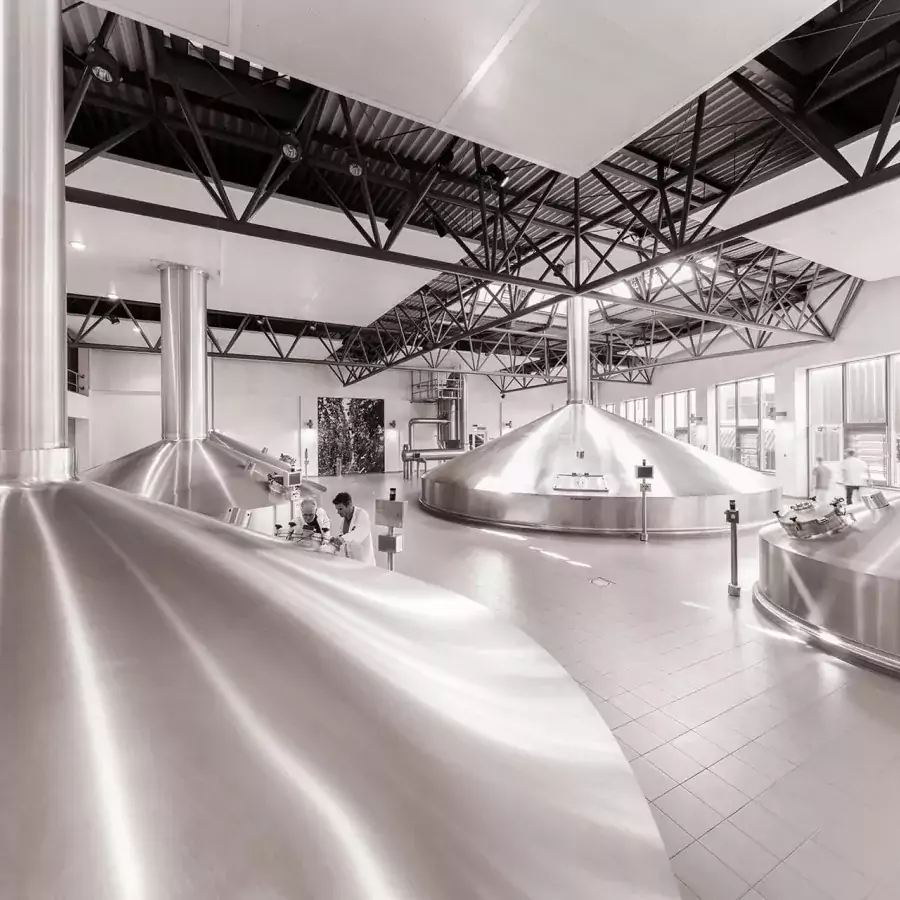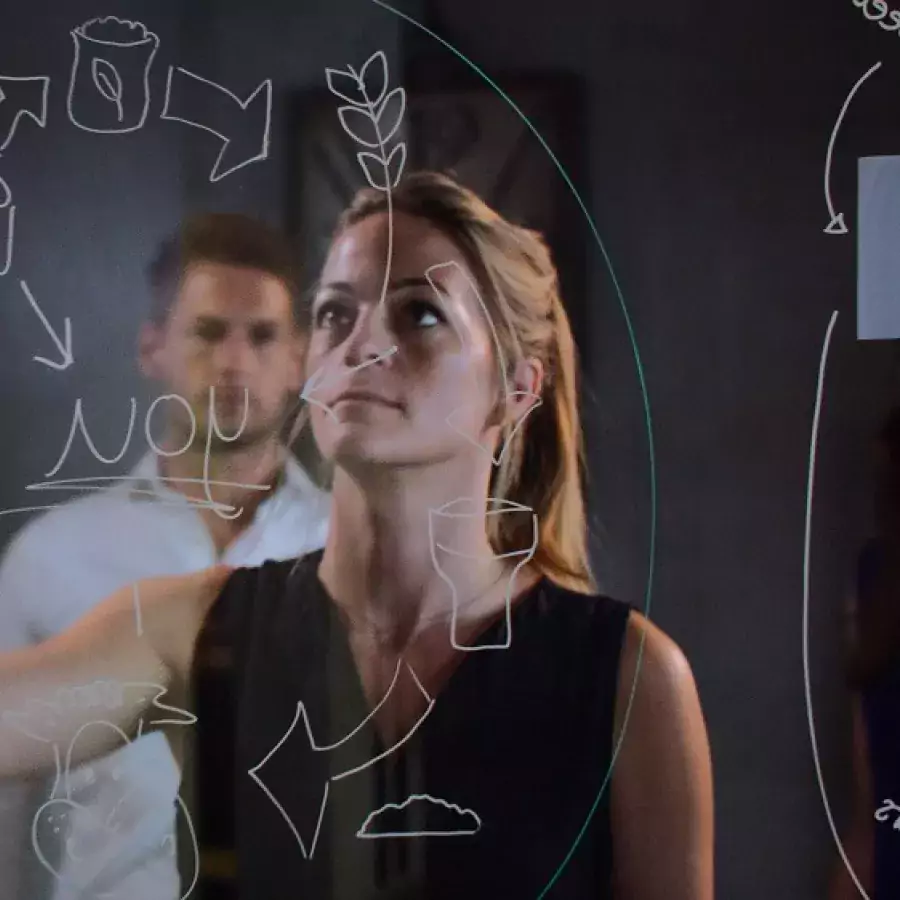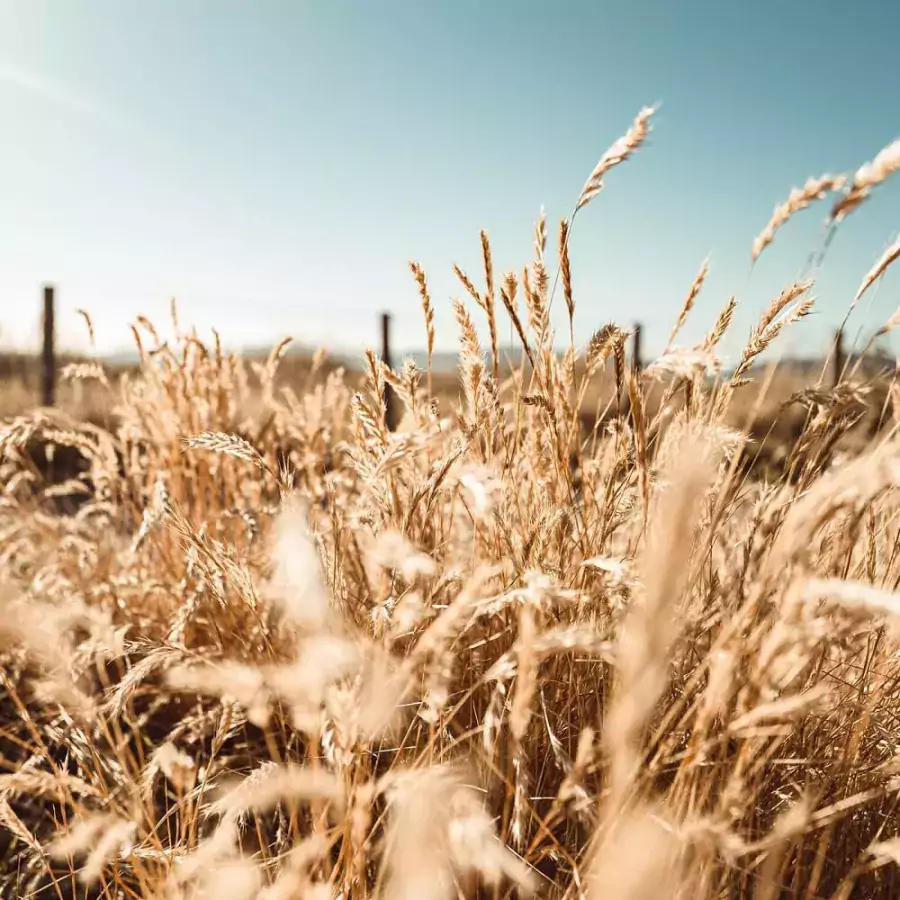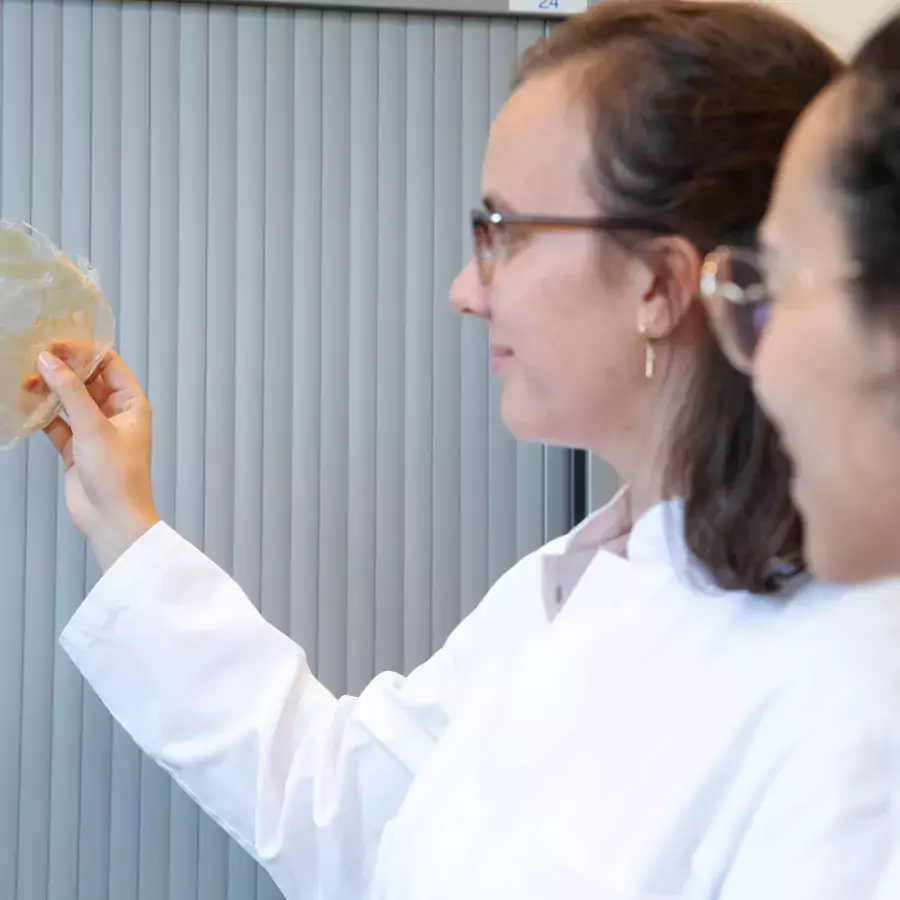HAN students contribute to increasing the value of residual streams through collaboration between HAN BioCentre and Looop.
The company Looop utilizes residual streams, also known as co-products, from the food and fermentation industries to produce high-quality raw materials for animal feed and livestock. Through collaboration with HAN BioCentre, Looop aims to enhance its contribution to a circular environment further. "There are excellent assignments for students."
Looop specializes in upgrading, valorizing, and transporting organic co-products in Northwest Europe. Co-products such as potato peels, wheat starch, and brewer's spent grains find new purposes in animal feed, livestock feed, as a renewable energy source, substrate for insects, and in innovative bio-based products. With sustainability and circularity gaining momentum, Looop sees opportunities to do more.
Therefore, Looop and HAN BioCentre recently signed a collaboration agreement. By exploring additional possibilities with the co-products and leveraging Looop's network, HAN students, particularly from the Academy of Applied Biosciences and Chemistry, will contribute to a circular future.
Collaboration between HAN BioCentre and Looop
Carlien Verberne, program manager at HAN BioCentre, is pleased with the renewed collaboration. "It started a few years ago with a project for a graduate student on a residual stream from the cheese industry," she says. "And now we have formally agreed to collaborate more. Looop provides assignments for our students, and we regularly meet to explore new possibilities."
These are all exciting projects for students. "They can express their creativity and develop new ideas that Looop can implement. It's also nice that a representative from Looop always comes to HAN to officially hand over the assignment. This strengthens the students' sense of contributing to real-world practices."
Fancy technologies
Kelly Vermeer, manager Strategic Business Development at Looop, looks forward to what HAN students can further contribute to the company. "At Looop, we are constantly conversing with other organizations that can contribute to our goal," she says. "A 100% circular world where waste does not exist by optimizing the valorization of residual streams. With the facilities at HAN and the students' expertise, I am confident they can help us."
"We have the logistics and connections in the business world to enable the reuse of co-products on a large scale," Kelly continues. She smiles and points to Carlien: "And with your 'fancy' technologies, you help us discover new possibilities and increase the value of our co-products."
The Looop Ladder
To illustrate what Looop means by 'optimal valorization,' Kelly refers to the 'Looop Ladder' established by the company, based on the Moerman ladder. "Using the 'Looop Ladder,' we valorize our co-products. The higher you climb the ladder, the smaller the ecological footprint."
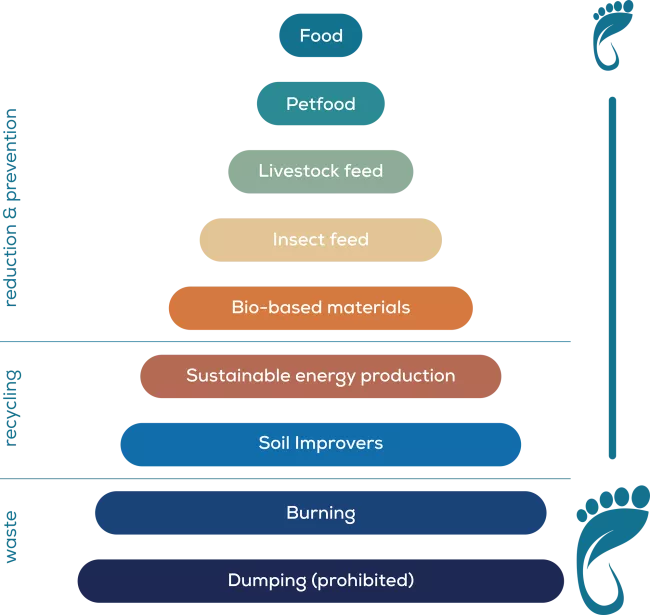
According to Carlien, the assignments align perfectly with the Biobased Innovations research group at HAN BioCentre. "Fermentation of residual streams and valorization of residual streams through biorefining are two important components of our Biobased research. Incidentally, Looop also has interesting assignments for students of the master's program in Circular Economy. This collaboration can benefit both Looop and HAN significantly."
To stay informed about all sustainable projects HAN students work on at the BioCentre,



